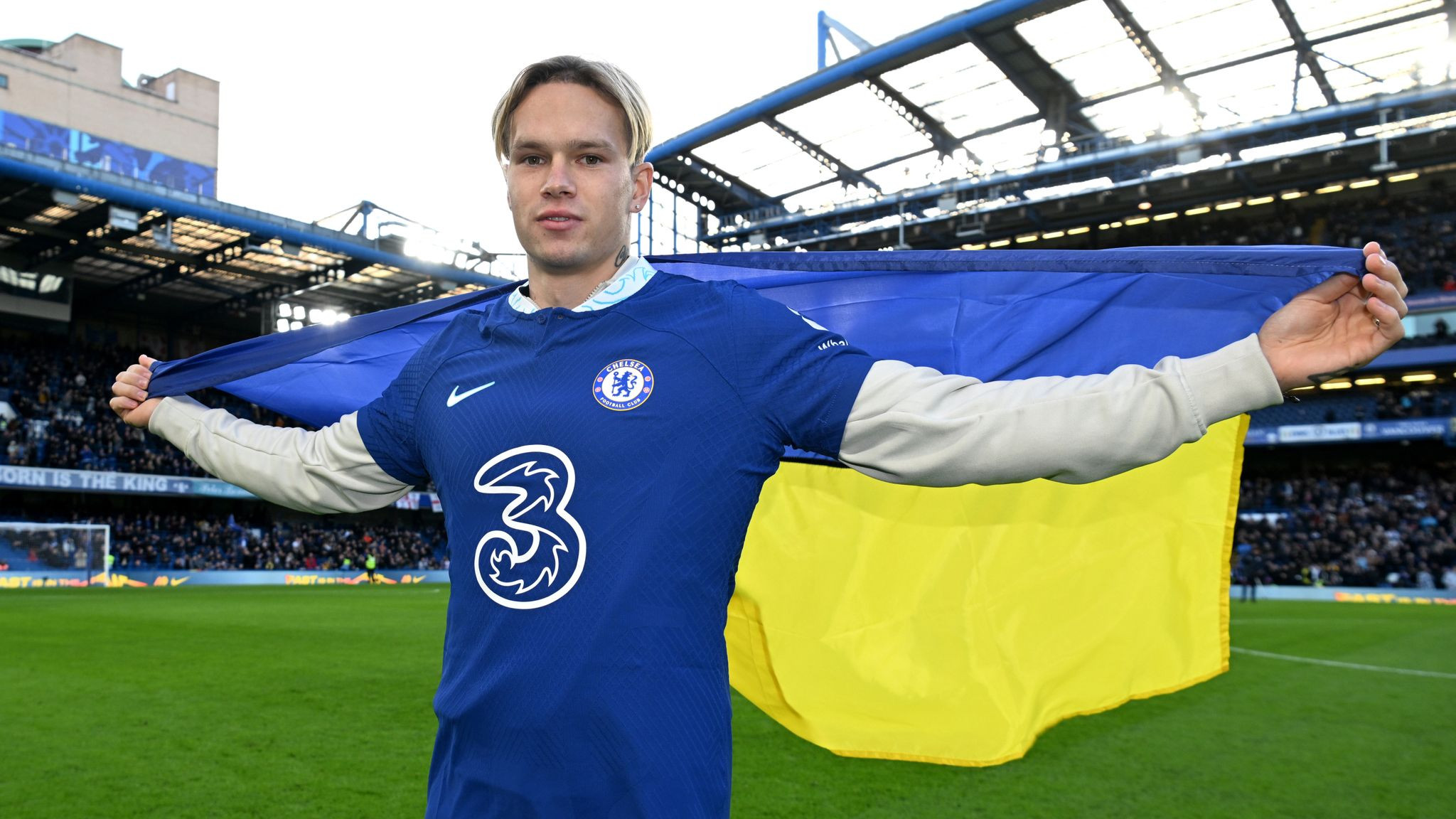Chelsea's Mudryk Tests Positive for Banned Substance
Chelsea winger Mykhailo Mudryk has found himself at the center of a major controversy after receiving notification from the Football Association (FA) regarding a positive drugs test. The news, which broke on Tuesday, sent shockwaves through the football world and raised significant questions about the young Ukrainian international's future in the sport. Reports from Ukraine initially suggested a prohibited substance was detected in his 'A' sample, provided at the end of October, with the 'B' sample awaiting testing. The potential implications of a confirmed positive test include a lengthy suspension from football, possibly up to four years under FIFA guidelines.
Mudryk's Statement and Chelsea's Response
Mudryk, 23, addressed the situation publicly via an Instagram post, expressing his “complete shock” and vehemently denying any intentional wrongdoing. He stated: “This has come as a complete shock as I have never knowingly used any banned substances or broken any rules and am working closely with my team to investigate how this could have happened.” He further emphasized his confidence in his innocence and expressed his hope for a swift resolution and a return to the pitch. Chelsea Football Club released a statement acknowledging the FA's contact and offering their full support to Mudryk while cooperating with the investigation. The club also reiterated Mudryk's claim of innocence and commitment to clarifying the situation.
The FA's Investigation and Potential Consequences
According to FA regulations, a player notified of a positive test result may face provisional suspension, pending the testing of the 'B' sample and a chance to respond. While the FA declined to confirm Mudryk’s provisional suspension or the exact date of the test when contacted by the BBC, the severity of the potential consequences remains a significant concern. A confirmed positive test for intentional use of a banned substance can result in a suspension of up to four years. This precedent is established by cases like Paul Pogba’s, whose four-year ban for meldonium was later reduced to 18 months following an appeal.
Mudryk's Recent Absence and Career at Chelsea
Mudryk's absence from Chelsea's last five matches had been attributed to illness by manager Enzo Maresca. However, the positive test revelation adds another layer of complexity to the situation. His time at Chelsea, since his high-profile transfer from Shakhtar Donetsk in January 2023, has been characterized by a mix of promise and inconsistency. While showcasing flashes of brilliance, he has struggled to secure a consistent starting position in the Premier League, making only one start this season.
Mudryk's career trajectory at Chelsea took a sudden and unexpected downturn with this revelation. His arrival was met with much fanfare, signifying a major victory for the club. His impressive performance in the Champions League group stage for Shakhtar Donetsk, along with his contributions to the Ukrainian Premier League, had set high expectations. His arrival was a significant coup, a major signing and a player who had shone for Shakhtar Donetsk in the Champions League, even impressing against Real Madrid. He also contributed significantly to the Ukrainian national team, including scoring the winning goal in a crucial Euro 2024 qualifier. Mudryk’s transfer to Chelsea was a statement move, reflecting the excitement surrounding his potential.
The Meldonium Controversy and Strict Liability
The banned substance found in Mudryk’s sample has been identified as meldonium, a metabolic modulator with performance-enhancing properties for athletes. The FA's anti-doping regulations operate under strict liability, meaning a player’s intent is irrelevant; a positive test result is sufficient for a violation. The FA’s anti-doping advice card emphasizes that players are solely responsible for any banned substances found in their system, regardless of intent. Therefore, Mudryk's claims of unknowingly taking the substance will likely hold less weight in the formal proceedings. The penalty for a doping violation can range from a mere month to the maximum four-year suspension. This will depend greatly on mitigating factors.
Impact on Mudryk's Future and Chelsea's Season
The situation presents a major challenge for both Mudryk and Chelsea. A lengthy suspension would severely impact Mudryk's career prospects, potentially derailing the potential he showed when he arrived at the club. For Chelsea, the incident adds another layer of complexity to their already challenging season. The club’s focus now shifts to cooperating with the FA investigation and supporting Mudryk through this difficult period.
Unraveling the Mystery: The Road Ahead
The coming weeks and months will be critical in determining the outcome of this case. The FA’s investigation will be meticulous, examining all available evidence, including Mudryk's statements, testing data, and any potential explanations for the positive test result. Whether the substance entered Mudryk’s system by contamination or intentional ingestion remains a crucial question that will shape the severity of any penalty. The results of the 'B' sample and Mudryk's own testimony will help shed light on his level of responsibility. This, in turn, will greatly inform the extent of any potential disciplinary action taken by the FA. Meanwhile, Mudryk's future at Chelsea and his career in professional football hang in the balance. The conclusion of this case, whatever it may be, will undoubtedly have far-reaching consequences for all involved. The entire football world waits with bated breath for the next chapter in this story to unfold. The FA's decision, when it eventually comes, will have far-reaching implications for the player, the club, and the wider football community.



















